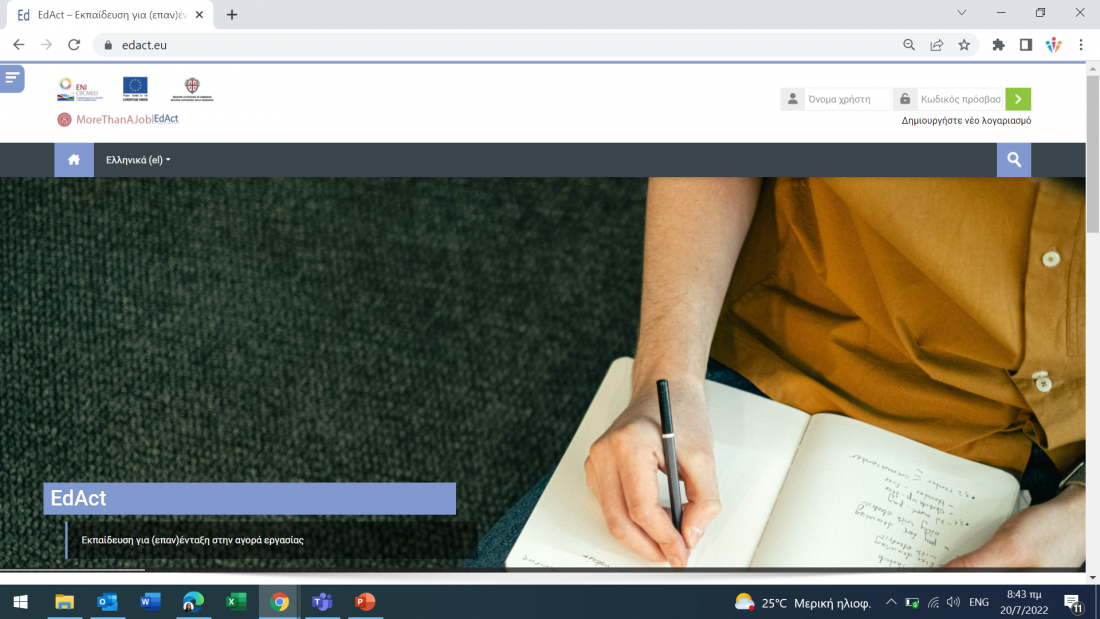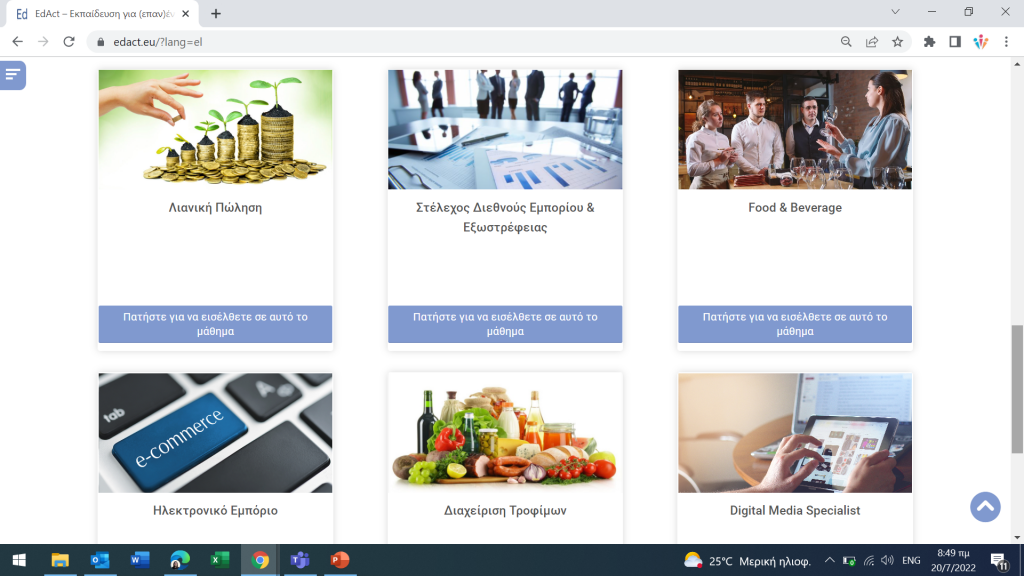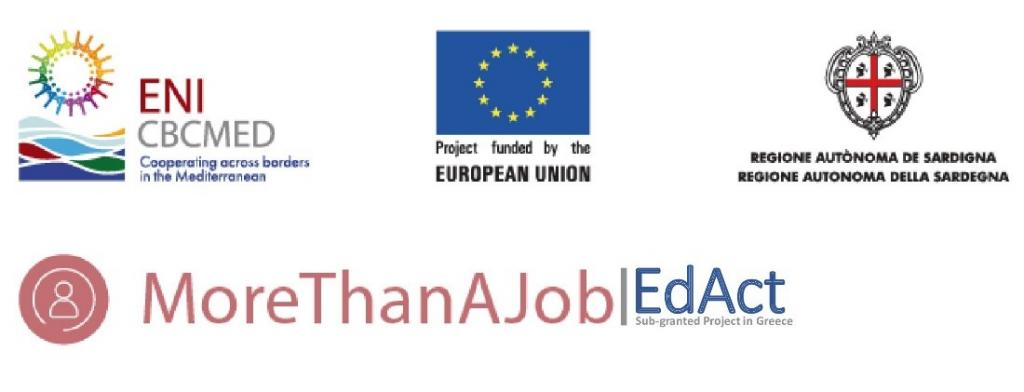MoreThanAJob launched educational platform to aid (re)entry in the labour market for women and migrants in Greece

The Greek sub-grant project EdAct implemented by KMOP launched an educational platform with funding from MoreThanAJob after an extensive piloting and testing phase. The project was designed to respond to the socio-economic phenomenon of unemployment, taking into account current trends in the labour market, taking full advantage of the possibilities that technology offers. EdAct thus offers added value for the development and delivery of welfare services promoting the social and labour inclusion of vulnerable people, a main goal of MoreThanAJob.
The educational platform offers specialised courses in areas of the labour market in which there is an identified shortage of workforce. The educational material is designed for people that belong to vulnerable groups, i.e. unemployed, uneducated, women, and migrants. For this reason, an extra focus was given to the skills needed for improving the beneficiaries’ public and civic participation, as well as their inclusion in society. Beneficiaries can sign-up, and then attend one or more courses based on their needs and there are free of charge. The ultimate goal is to train 100 beneficiaries, so that they can be (re)integrated in the Greek labour market. The platform will remain operational after the project’s end, so that more people can benefit from it even at later stages.
Public-private cooperation in action
EdAct provides a great example of the benefits that can arise through the cooperation between public authorities and Solidarity and Social Economy Actors as outlined in the MoreThanAJob framework. KMOP, a social action and innovation center, collaborated closely with the Drama Chamber of Commerce and Industry (DCCI), a local public organization of businesses and companies in Northern Greece. The collaboration allowed the exchange of data and ideas around the current needs of the market and what courses would be the most helpful to the beneficiaries. DCCI, being in close contact with many businesses, pointed out the 3 main sectors of the labour market that are in high demand. They also highlighted the importance of providing both hard and soft skills to better address unemployment, a challenge that is becoming more and more prevalent in the midst of the COVID-19 pandemic, and the migrant and energy crises.

EdAct features 6 courses, developed around 3 main sectors: Digital Innovation in communication, Provision of services, and Agrifood. The courses respectively are: Digital Media Specialist, E-commerce Systems Specialist, Sales and Retail, International Commerce, Food and Beverage, and Food Management. Each course is tens of hours long, and consists of multiple modules that focus both on soft and hard skills. The material is available through asynchronous e-learning in order to facilitate the participation of people regardless of their location in the country, or their schedule. The material is interactive and dynamic, and it also provides the students with self-evaluation tests to ensure they achieve the learning outcomes of each course.
MoreThanAJob Best Practices promoted by EdAct

In recent years, many training programs are being implemented to try and bridge the skills gap between supply and demand in the labour market. What sets the EdAct project apart, is the adoption of best practices and recommendations outlined in the MoreThanAJob framework and Policy Briefs. More specifically, the project promotes the collaboration of public and private bodies, it intervenes by providing empowerment and not just relief, it capitalizes on labour market integration best practices, and it facilitates the exchange of knowledge. Most importantly, EdAct overall advocates for active citizenship and delivery of welfare services promoting the social and labour inclusion of vulnerable people.
For more information on EdAct and its activities, visit the KMOP and EUROTraining websites.
For more information on the project and its activities, visit the MoreThanAJob webpage on the ENI CBC Med website and follow us on Facebook, Twitter, and LinkedIn.









